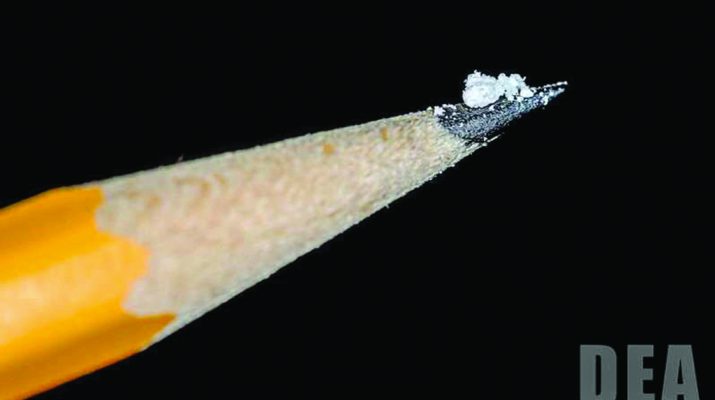Drug Enforcement Administration (DEA) Omaha Division Special Agent in Charge Justin King recently addressed members of the Nebraska Council of School Administrators (NCSA) at the Younes Conference Center in Kearney discussing national and statewide drug trends and their impact on Nebraska’s communities.
“Overdose deaths are at an all-time high with more than 108,000 people losing their life to drugs last year,” King said. “We feel it is important to address these topics with our state’s school administrators and staff, making them aware of current drug threats and providing resources to further educate students in our communities. We want to raise awareness to the dangers of drugs and help students reach their full potential in life without succumbing to drug addiction and possible overdose.”
King’s presentation provided an overview of national drug seizures made in 2021 and detailed how drugs reach Nebraska communities.
The DEA has seen an increase in fake pills laced with fentanyl both nationally and in Nebraska. Fentanyl is a synthetic substance 50 times more potent than heroin and 100 times stronger than morphine. Two milligrams of fentanyl, an amount that can fit on the tip of a pencil, is considered a potentially lethal dose. DEA lab testing reveals that four out of every 10 pills with fentanyl contain a potentially lethal dose. Mexican drug cartels are responsible for the vast majority of illicit fentanyl being trafficked in the United States with criminal drug networks in Mexico mass producing fentanyl-laced fake prescription pills using chemicals largely sourced from China.
“We’re seeing fentanyl in pill form and we’re seeing it laced with other drugs like heroin, methamphetamine and cocaine,” King said. “Sixty-seven percent of the more than 108,000 overdose deaths last year were attributed to synthetic opioids such as fentanyl. This is why it’s so important that we share this message and provide educational resources that inform the public on the threat facing our communities.”
King concluded his presentation by answering questions from the audience and gave three websites, www.DEA.gov/OnePill, www.GetSmartAboutDrugs.gov and www.JustThinkTwice.gov as valuable tools for parents, students and school districts.

